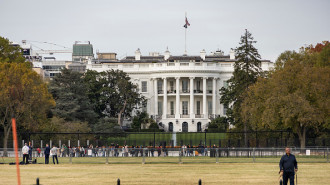Egypt auctions US$1.61 billion worth of treasury bills amid shortage of greenbacks
The Central Bank of Egypt (CBE) auctioned on Monday, 13 November, 1.61 billion-US-dollar denominated treasury bills in a bid to overcome the shortage of the greenbacks attributed to the Israeli offensive against the Palestinian Gaza Strip that has entered its sixth week.
The CBE's highest debt instruments offering in US dollars since May 2020, the treasury bills will be repaid on 12 November 2024 at a yield yet to be declared, local state-run Al-Ahram newspaper reported online, citing an official CBE statement.
A T-Bill is a short-term debt duty backed by the Ministry of Finance with a maturity of one year that depends on interest rate expectations.
Usually, CBE issues T-Bills on behalf of the finance ministry to cover the budget deficit.
In recent weeks, the value of the US dollar against the local currency in the Egyptian informal market skyrocketed, which is believed to be a direct consequence of the ongoing deadly Israeli war on Gaza.
One US dollar is officially equal to about 30.90 Egyptian pounds (EGP), whereas its value against the local currency black market ranges from 47 – 49 EGP at the time of publication.
Egypt's budget deficit accounted for six per cent of its GDP in the fiscal year (FY) 2022/2023. In the same FY, Ahram reported that the country's debt-to-GDP ratio amounted to 95.6 per cent, with the GDP recording 9.8 trillion EGP (about US$318 billion).
The Egyptian local currency has long been struggling against the US dollar due to controversial economic measures taken by the government of President Abdel Fattah al-Sisi.
Over the past months, the Egyptian government has begun selling state assets to wealthy Gulf nations, including army-owned firms, to attract foreign currency and liberate the economy from state control, a significant demand of the US$3 million loan programme signed with the International Monetary Fund (IMF).
The situation has been exacerbated by alleged corruption and an eight-year borrowing spree, which has seen the state spend money on "white elephant" projects such as the New Administrative Capital.





 Follow the Middle East's top stories in English at The New Arab on Google News
Follow the Middle East's top stories in English at The New Arab on Google News


